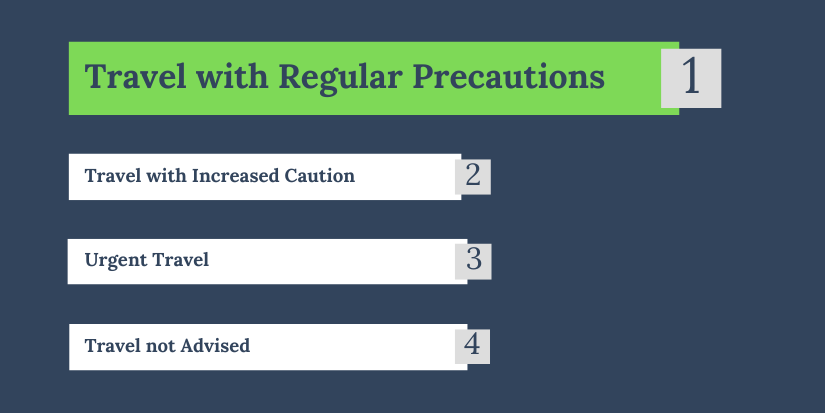
VISA REGIME
For holders of national passports and other travel documents: A visa is not required for stays of up to 90 days in a 180-day period
For holders of diplomatic and official passports: A visa is not required for stays of up to 90 days in a 180-day period
Note: Holders of emergency travel documents in transit require a visa unless they have a residence permit in one of the Schengen countries
ENTERING AND LEAVING THE COUNTRY
For entry into the Kingdom of Denmark, regardless of the mode of transportation—road, air, or sea—a valid Serbian travel document is required. The passport must remain valid for at least three months beyond the planned departure date from Denmark. Passengers who do not meet these basic requirements will be denied entry at the border.
Proof of vaccination is not required for entry into Denmark. However, for personal safety during your stay, it is advisable to have health insurance coverage.
You may bring up to €10,000 into or out of Denmark without declaration; amounts exceeding this must be declared.
For more detailed information, visit the following links:
Information about importing hunting weapons can be found at www.virk.dk, and for traveling with pets, see www.uk.foedervarestyrelsen.dk.
Customs authorities at Copenhagen Airport can be reached at +45 7237 1140 on weekdays from 7:00 AM to 5:00 PM and on Saturdays from 7:00 AM to 1:00 PM. They are unavailable on Sundays.
Airport police are available at +45 3314 1448 or via www.politi.dk.
SOCIAL SECURITY AGREEMENT
Convention between the Socialist Federal Republic of Yugoslavia (SFRY) and the Kingdom of Denmark on Social Insurance from 1979 (this Convention was ratified by Serbia and Montenegro and the Kingdom of Denmark in 2004, based on the SFRY Succession Agreement).
The Convention applies to citizens of the Republic of Serbia and the Kingdom of Denmark who spent part of their working life in Denmark and part in Serbia, thus acquiring the right to pension, i.e. that all the pension contributions paid in both countries be mutually recognised.
USEFUL INFORMATION
HEALTH SITUATION — Detailed information on the current health situation in the Kingdom of Denmark can be found on the World Health Organization website: https://www.euro.who.int/en/countries/denmark.
If in need of an emergency medical intervention, call the emergency services by telephone at 112.
SECURITY SITUATION — The issue of security in the Kingdom of Denmark falls under the jurisdiction of the Danish Security and Intelligence Service (PET). This agency is responsible for identifying, preventing, investigating, and countering threats to the freedom, democracy, and security of Danish society. PET provides regular threat assessments and analyses to prepare society for challenges related to terrorism and espionage. These assessments and analyses are available at the following links:
TRANSPORT — The largest and the most important airport in Denmark is Kastrup, located in Copenhagen. In other parts of the country there are several smaller airports (e.g. direct connection Belgrade – Billund) less attractive from a tourist aspect (Aarhus...).
Additional information:
Kastrup ― www.cph.dk, tel. 00 45 32 31 32 31, Aarhus ― www.aar.dk, tel. 00 45 87 75 70 00, Billund ― www.billundlufthavn.dk, tel. 00 45 76 50 50 50.
The most important ports are: Kobenhavns Havn, Nordre Toldbod 7, 1013 Kobenhavn K, Helsingor Havn, Faergevej 8, 3000 Helsingor, Rødbyhavn, Faergestationsvej 5, 4970 Rødby.
Reservations and purchase of passenger tickets for ships from Germany to Denmark or from Denmark to Sweden and Norway: Scandilines Danmark A/S ― www.scandilines.dk, tel. 00 45 33 15 15 15, Stena Line ― www.stenaline.dk/faerge/, tel. 00 45 96 20 02 00, DFDS Seawaystel, tel. 00 45 33 42 30 80.
The railway network is very modern, and the connection and development level guarantee the possibility of travel to all European destinations. For information, go to: www.dsb.dk. The roads are of high quality, and all important destinations are connected by motorways built in accordance with the highest standards.
During a tourist stay in this country (up to 90 days), tourists may drive a motor vehicle using a national driver's licence. If travelling by a vehicle registered in the Republic of Serbia, insurance is required ― Green Card. There is an agreement with Denmark on mutual recognition and exchange of driver’s licences that enables persons with regulated residence in Denmark to exchange their Serbian driver’s licence for a foreign (Danish) one without re-taking the driving test. This exchange only applies to “B” category driver’s licences.
More detailed information on driving motor vehicles in the Kingdom of Denmark can be found on the website: www.fdm.dk.
OTHER — The official currency is the Danish crown (1 EUR = 7.5 DKK, 1 USD = 5.7 DKK).
Most types of payment cards issued by Serbian banks are accepted in Denmark. For further information, travellers should contact their bank in the Republic of Serbia.
Types of public transport tickets available are one-way, daily, weekly, or monthly. They can be purchased at the ticket machines or at the 7-ELEVEN chain convenience stores. Public transport users should always remember to check in with their tickets at the start of their journey and to check out at the end of it. All information is available at: https://www.rejsekort.dk/koeb-rejsekort/voksen/rejsekort-anonymt.aspx?sc_lang=en. All information on Denmark is available on this website www.denmark.dk/en, while tourist information is available at www.visitdenmark.dk.
Contact information:
During your stay in the Kingdom of Denmark, for consular assistance and protection you may contact the Embassy of the Republic of Serbia in Copenhagen (address: Svanevænget 36, 21 000 Copenhagen), at the following telephone numbers: 00 45 39 29 71 61, 00 45 39 29 77 84, or e-mail: embassy.copenhagen@mfa.rs.
